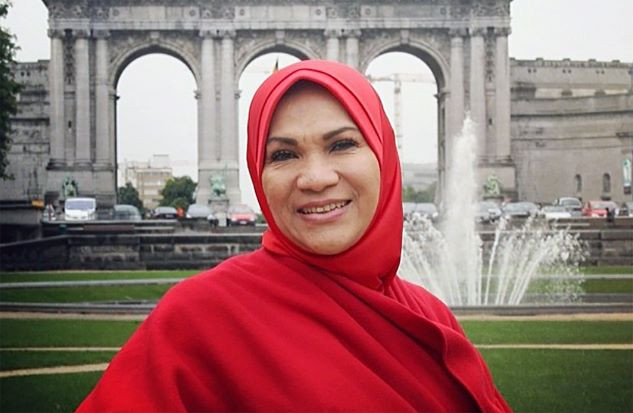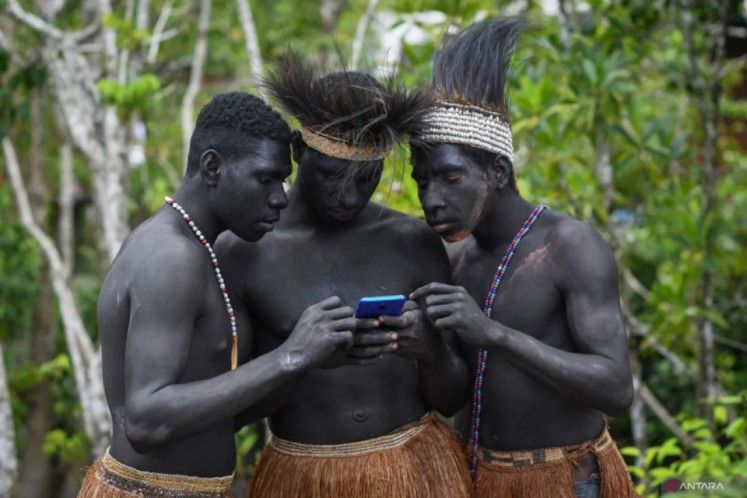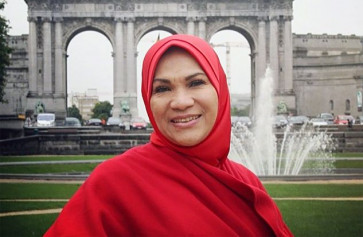Popular Reads
Top Results
Can't find what you're looking for?
View all search resultsPopular Reads
Top Results
Can't find what you're looking for?
View all search results'Bunda" Dorce’s burial saga: Her conundrum, or ours?
Let’s not forget the MUI’s origins. It was set up in 1975 by the authoritarian New Order government to enable the Soeharto regime to control Muslims.
Change text size
Gift Premium Articles
to Anyone
W
e all have desires and wishes, right? The dying also, and theirs' is usually their last. Even prisoners on death row are allowed to have their last wish before they are executed. Convicted of murder and executed in 2000, Texan Odell Barnes’s last request was pretty utopian: “Justice, equality and world peace”. Unfortunately, the prison officials could not fulfill it. Aww, shucks!
Unlike Odell, often a dying person’s last wishes are reasonable enough: to be surrounded by family, to die at home or to be buried in a certain location. Sometimes there are practical, legal or ethical considerations that create obstacles for their last wish to be carried out. But whatever the constraints, it is the loving duty of the family to fulfill the dying person’s last wish, especially if it means that the deceased will have dignity in death and not instead be dehumanized.
The wasiat (last wish) of Dorce Gamalama – comedienne, singer, presenter, talk-show host, actress – in short, multitalented artist – who died on Feb. 16, was to be buried as a woman. In Islam, wasiat should be granted, as long as it is not against sharia.
Assigned male at birth in 1963, she had sex reassignment surgery in 1983 and was legally recognized in court as being a woman. Not having a womb, she could not bear children, but for all other intents and purposes, Dorce was a woman, physically, legally, and certainly psychologically and emotionally (see “The Complex Legacy of Dorce Gamalama”, The Jakarta Post, Feb. 17, 2022)
Dorce was married twice, had three adopted children – Fatimah, Khadijah and Rizky – and 1,500 foster children, cared for by a foundation she set up for orphaned kids. All her children called her bunda – mother – a hallowed version of the usual ibu. So, in Indonesia, Mary, the mother of Jesus Christ, is Bunda Maria, and Mother Teresa, Bunda Teresa.
Others called Dorce bunda as well, due to her generosity and her humanitarian work, especially in relation to children and education. Such veneration for a comedienne and artist? Yes, because Dorce was known as a philanthropist and later in life, a devout Muslim. She built a mosque near her house, went on haj twice (and paid for many others to go as well) and since 2014, wore the hijab. She eschewed the glittery, glamorous outfits, makeup and fancy bouffant hairdos, like what she wore when performing for President Joko “Jokowi” Widodo in 2014: Singing, making jokes and even flirting with him.
Suffering from diabetes and later COVID-19 and obviously sensing that she would die soon, Dorce repeatedly stated her wish to be buried as a woman. Her statements triggered a debate among patriarchal ustadz (Islamic teacher) and the Indonesian Ulema Council (MUI) who insisted she be buried as a man. In response, Dorce said, let it be a family decision, basically telling the MUI and those busybody ustadz to mind their own business.



















